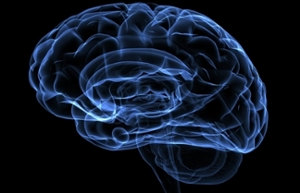
What is Neuroimaging?
Neuroimaging is a branch of medical imaging that focuses on the brain. In addition to diagnosing disease and assessing brain health, neuroimaging also studies:
- How the brain works
- How various activities impact the brain
NCPRC uses a neuroimaging technique called magnetic resonance spectroscopy (MRS). MRS in our studies allows researchers to obtain biochemical information about the brain, while magnetic resonance imaging (MRI) only provides information about the brain’s structure.
MRS equipment is capable of being tuned (similar to a radio receiver) to pick up signals from difference chemical nuclei within the brain. We use proton and phosphorus coils to evaluate brain chemistry that may be associated with mood disorders in adolescents.
MRS is a non-invasive magnetic resonance technique that does not use radiation. MRS scans are obtained in MRI scanners, which look like a large cylinder with a tube running down the center.
What to Expect as a Study Participant
When a study participant receives an MRI scan, they are asked to lie down on their back on a foam-padded table and place their head in a special holder. The table will slide inside the tube of the scanner. Soft foam rubber sponges may be placed on both sides of a participants’ head for comfort and to help keep from moving.
Because the scanner contains a strong magnet, participants are asked to remove all metal objects including, but not limited to: watches, rings, necklaces, bracelets, earrings and other body piercings, belts, loose change, wallet (with credit cards), items of clothing containing magnetic materials (for example, underwire bras, certain types of zippers), and shoes.
During the scanning procedure there are a number of different sounds. Some of these sounds are loud and are part of the scanner’s normal operation. These noises vary with the type of scan performed and include sounds like: a hammer hitting a piece of wood, repetitive buzzing noises, and long series of loud beeps. Some scans are silent.
If you ever feel uncomfortable during the scan, you may ask to stop the scan by pushing a button provided by the MRI technologist.
Learn More About Neuroimaging
RadiologyInfo.org
MRISafety.com
International Society for Magnetic Resonance in Medicine
University of Oxford Centre for Clinical Magnetic Resonance Research
